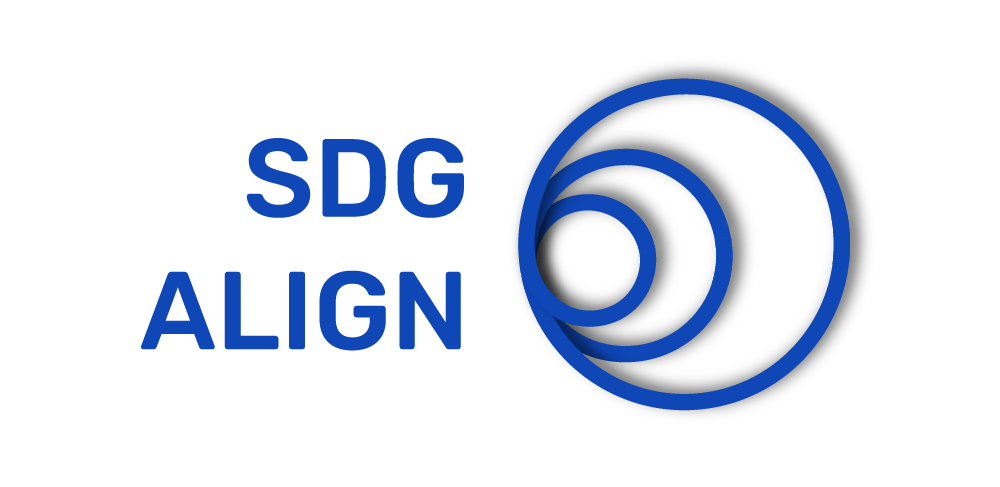Our Story
Vision
A future where every business is designed and driven to make a positive impact on people, planet and prosperity.
Mission
We are on a mission to deliver the tools and insights that help business leaders design the strategies to make sustainable practices a business habit.
Think Globally – Act Locally
In 2015, the United Nations set out 17 Sustainable Development Goals (SGDs) with an overarching mission to end poverty, protect the planet and improve the lives and prospects of everyone, everywhere. With these goals in mind, and the 2030 Agenda as a guide, 192 countries around the world are implementing a range of initiatives and partnerships to deliver on this grand vision.
These initiatives are often thought of as only operating at a national scale, but importantly also include state, local level, business and consumer actions. Global impact can only be achieved through local action.
Our Place in the Global Community
Australia is a signatory to the UN SDGs and ranked 40th on the Global SDG index, has an important role in implementation of the SDGs and the 2030 Agenda. As corporate supply chains extend around the globe and engage both developed and developing nations, Australian business leaders must play their part in ensuring development within each level is sustainable and supports our region in achieving measurable outcomes that support SDG alignment.
Many developed nations, partly in North America, Europe and Asia have embraced SDGs as part of the consumer, business and government narrative. There are many lessons to be learned from these frontrunners in practising a sustainable business habit in how to align the UN SDGs to business activity. Bringing such understanding to Australian businesses and their supply chains will be critical to support implementation and a move to a more sustainable future.
Drivers for adoption of the SDGs
The key drivers for the adoption of the SDGs:
Consumers are demanding higher standards of environmental performance and commitment to sustainable development. They are increasingly prepared to pay a premium for these out- comes.
Businesses see the financial return on investment from the perspective of economic efficiency and growth. Sustainability is shaping ESG investment profiles which are increasingly focused on ethical and sustainable investment portfolios. COVID-19 has shown us on a massive global scale that we do not have to be in the same physical space to work together. This will have future implications for how we will commute to work, how we work and how we live our lives.
Employers seeking to attract and retain talent now require an alignment between the culture and values of the organisation and the employee. Many, particularly younger, workers will choose to only work for businesses with a purpose who share their values and commitment to a sustainable future.
Governments who are signatories to the SDGs, are committed to reporting progress towards these goals. It is likely that government and private investment will move to include sustainable practices as key assessment criteria over time. It is anticipated that in future, businesses may need to prove their sustainable bona fides to qualify for projects.
Sustainable Development is more than the Environment
For many people, the conversation around sustainability is limited to carbon and energy, or air, water, or waste: it is assumed that sustainability equates solely with environmental concerns. The SDGs, however, provide a far more nuanced and encompassing notion of sustainability that, while including environmental concerns, equally highlights social and economic imperatives.
- Safe, accessible and affordable housing
- Equitable access to health and education
- Sustainable employment and wages
- Disaster resilience
- Efficient public transport
- Sustainable production and consumption
- Innovation and sustainable industry
Industry example: Built environment
The built environment has a phenomenal capacity to effect the world in terms of its social, economic, and environmental impacts. In Australia alone, the built environment provides:
- work for 2 million
- 400,000 learners and future workers 9% impact in Australian GDP
- 27% Impact on of UN SDG’s
- 36% impact on Carbon emissions
And beyond our borders, we have a role to play in ensuring our prosperity is not at a cost to less developed members of our global supply chain.
Current focus on sustainability
Although sustainability is a clear concern across corporate Australia, much of the effort is in reporting, performance monitoring and certification. To be truly successful, such efforts also require a broader and ongoing corporate commitment supported by the individual capabilities necessary to deliver outcomes. In short, we have to change the system of how we live and work to align with our desired futures.
Larger corporates and multinational organisations are already reporting on ESG (environment, social and governance) outcomes, but there is a significant opportunity for organisations to adopt and align with the UN SDGs to expand their contribution beyond a pure environmental focus to include social, ethical, and community sustainability.
As corporates engage with their supply chain stakeholders they’re challenged by a capability and datarepoting gap. Most of the Tier 2 and tier 3 suppliers are Small and Medium Enterprises (SMEs) and not yet familiar with the UN SDGs and ESG reporting frameworks. They simply do not have the resources.
Broadening the Focus to Sustainable Development
The UN Sustainable Development Goals require a range of interrelated activities and capability to realise. Adopting SDGs does not replace existing accreditation or reporting frameworks. Alignment with UN SDGs provides a global reference framework for all sustainable activities, whether they are project outputs, business culture, skills of individual or government policy. They present a framework to lift our focus from local environmental impact to global sustainability and development.


